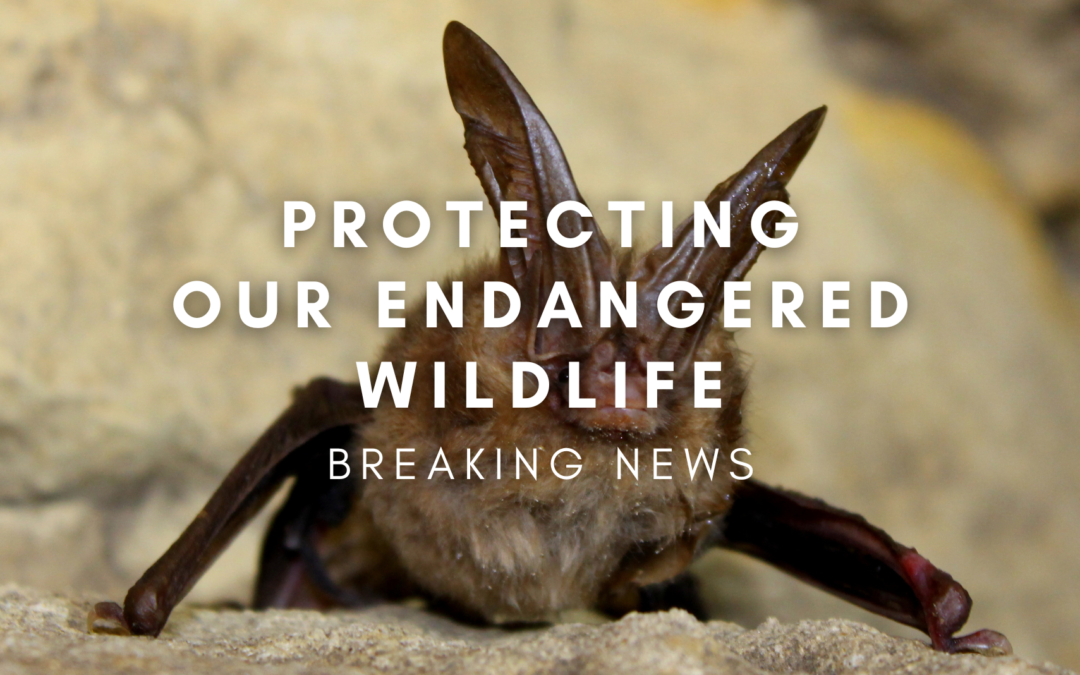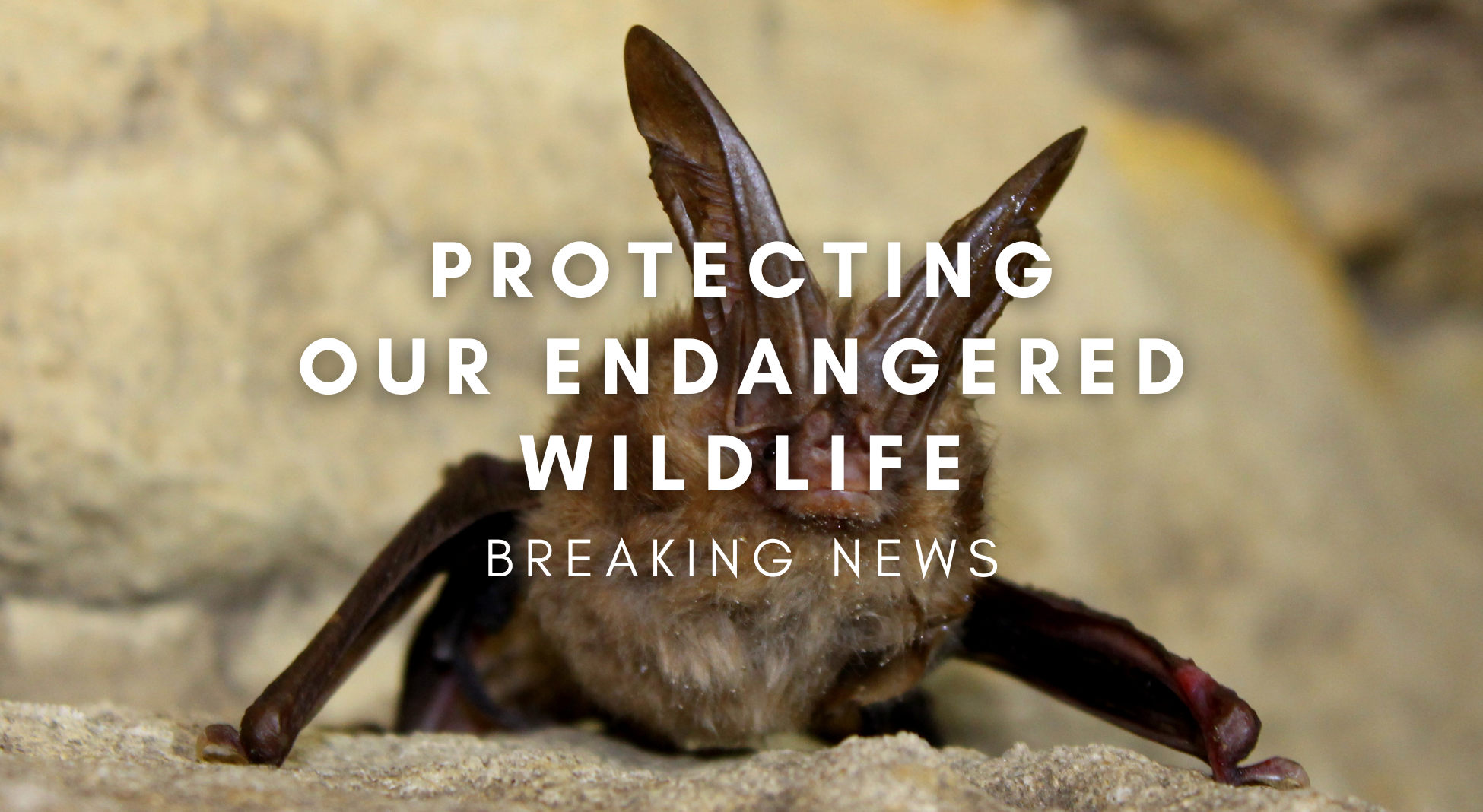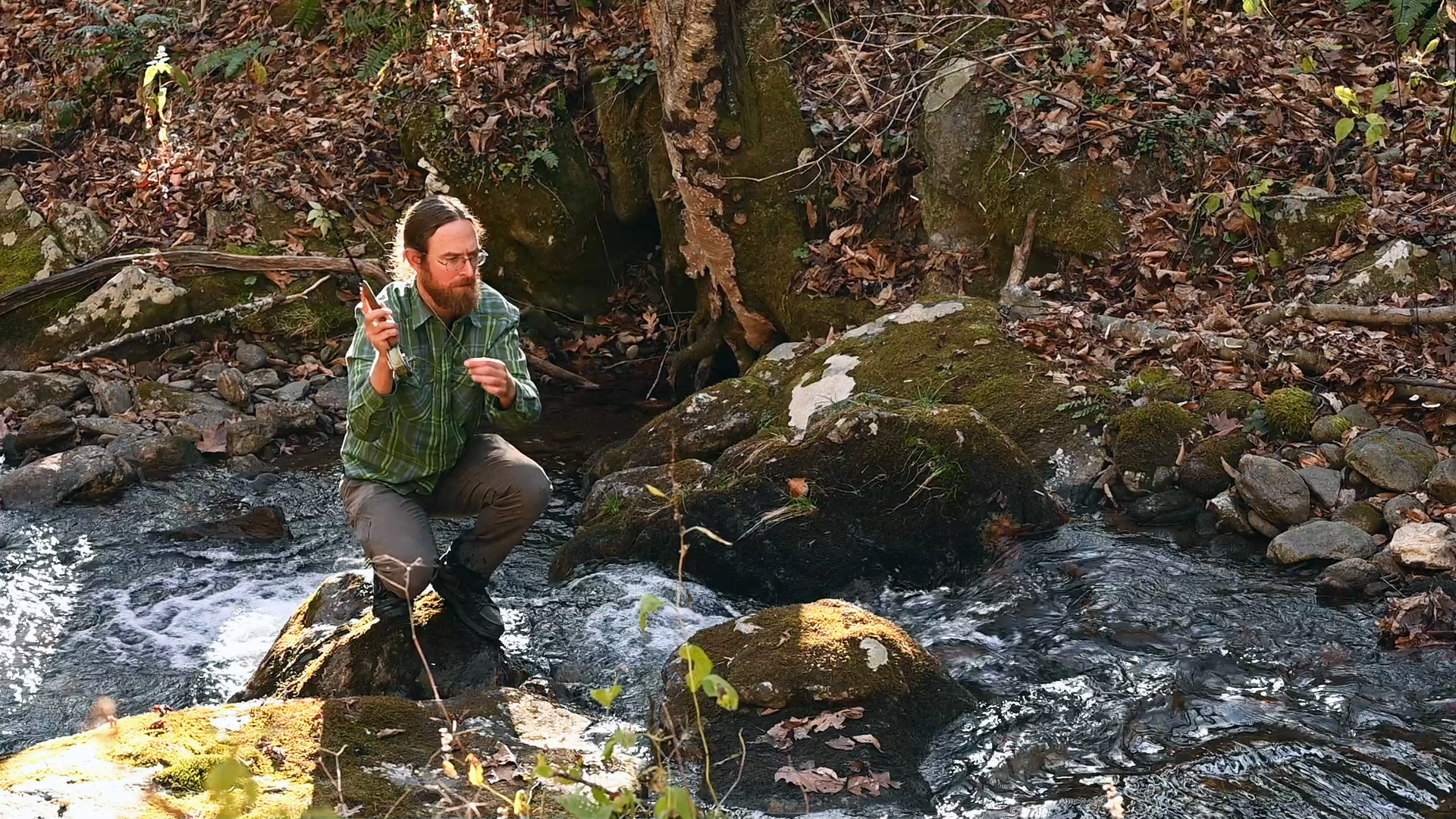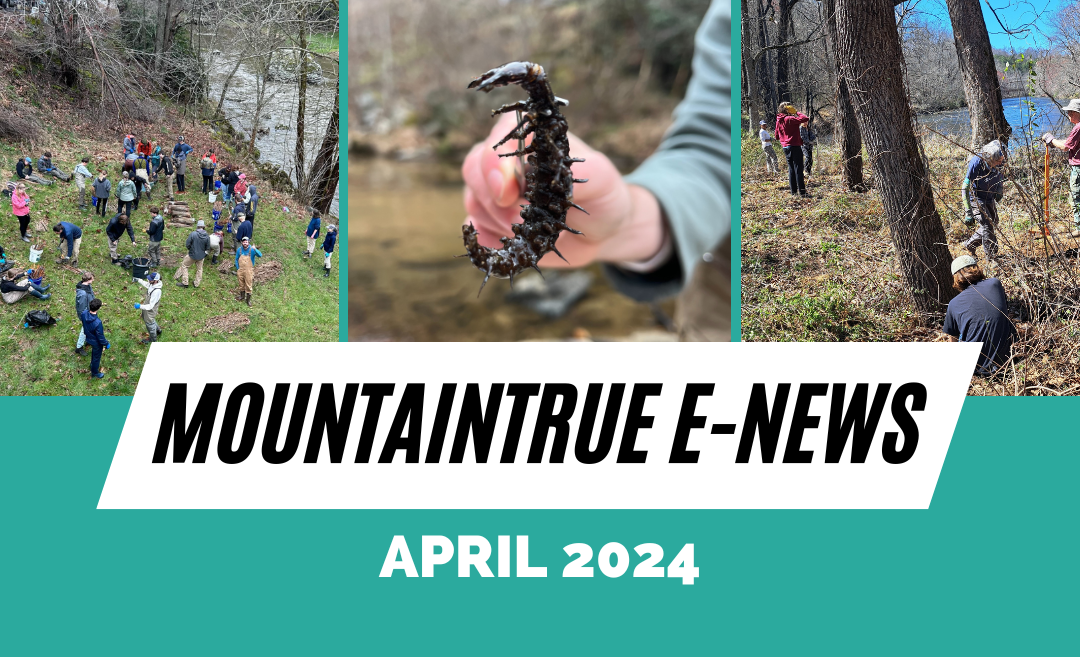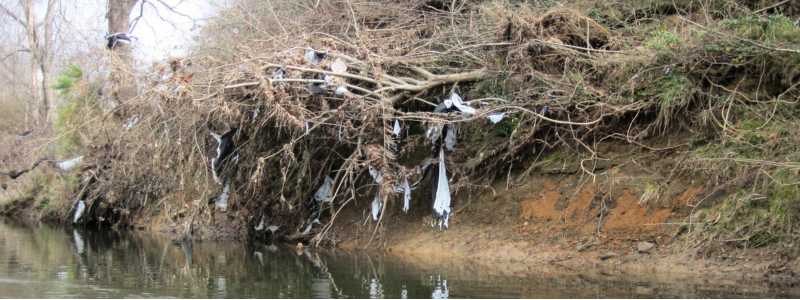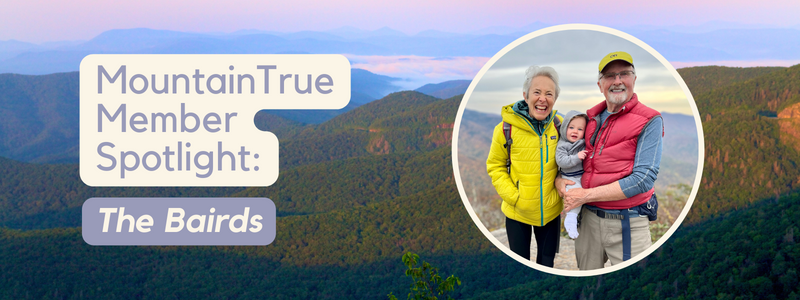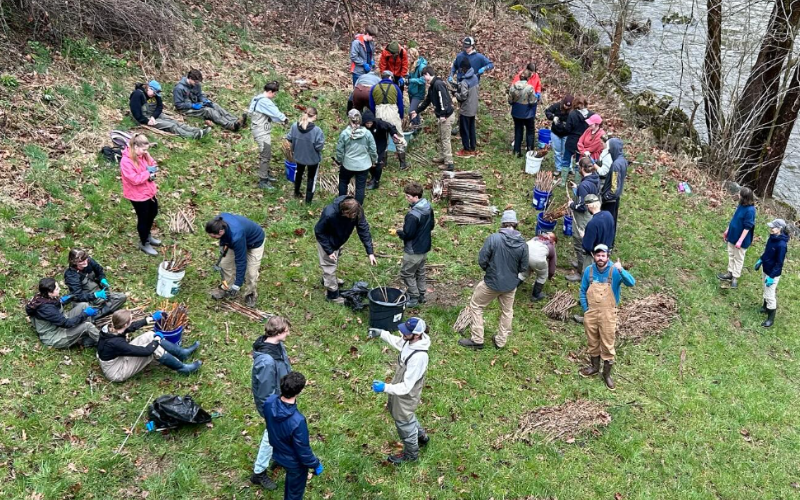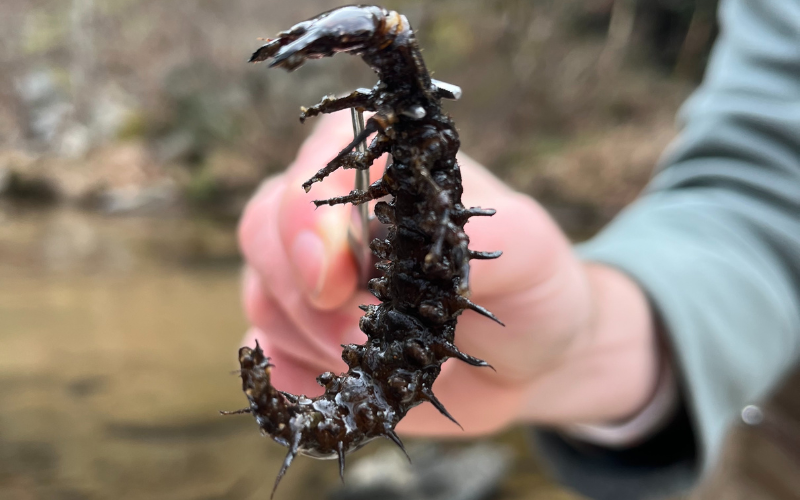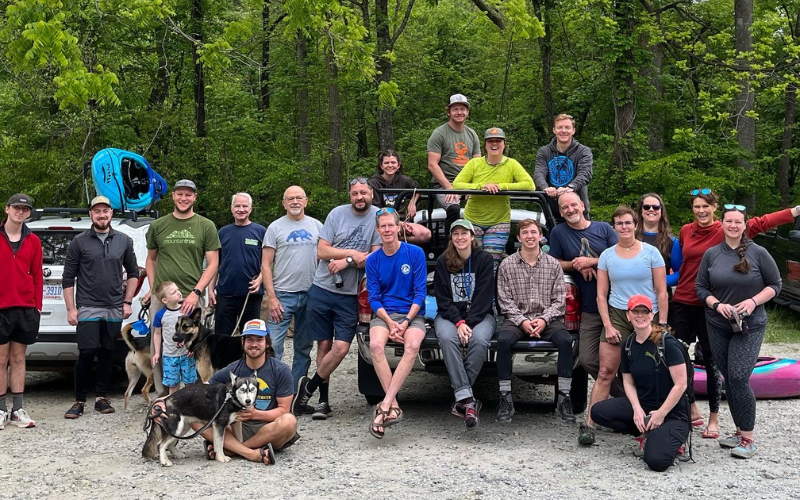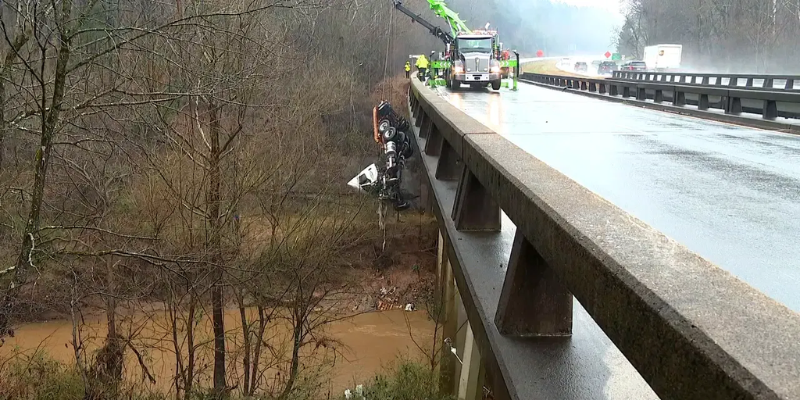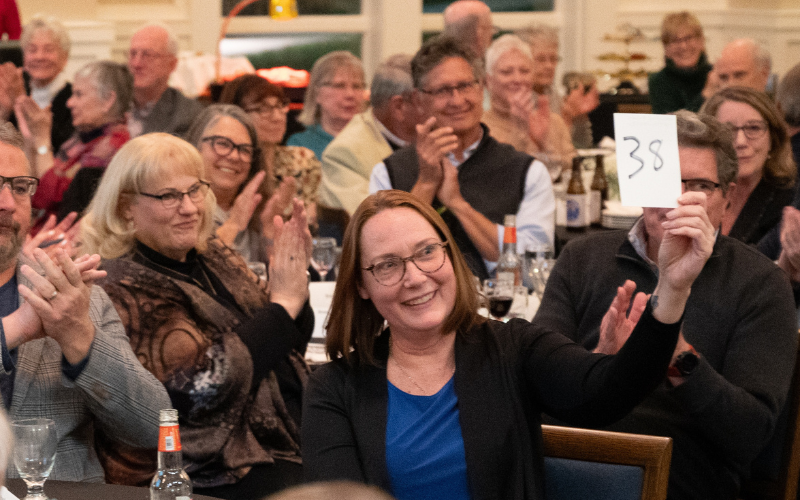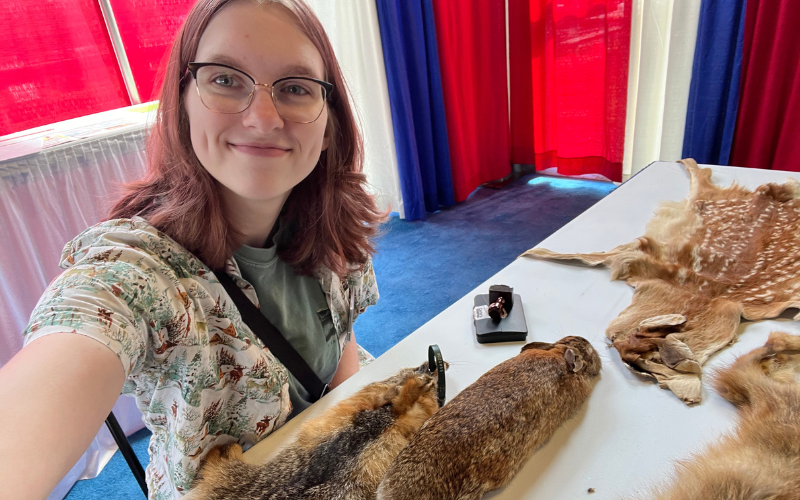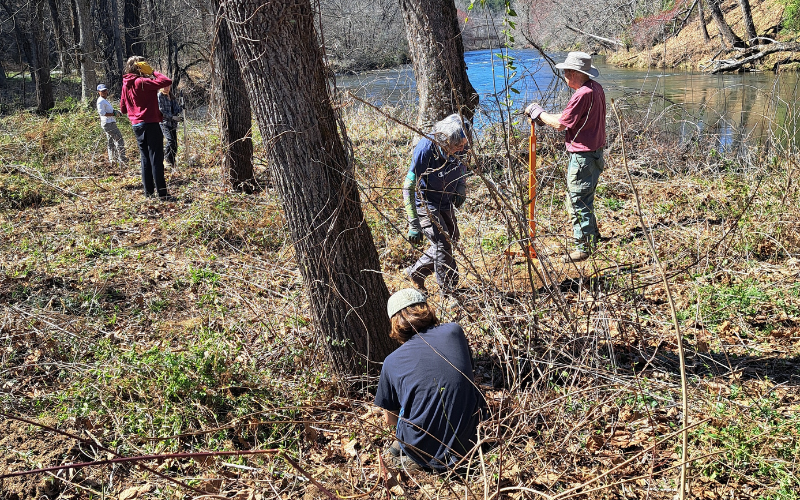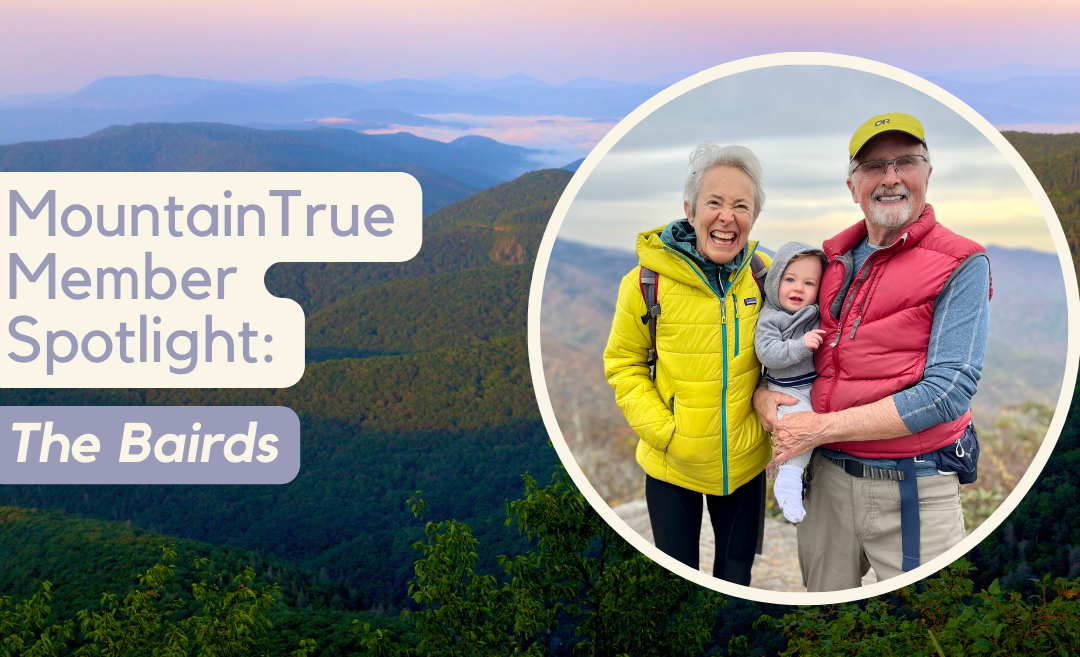MountainTrue member spotlight: meet the Bairds
Ross and Bess Baird have been MountainTrue members for more than a decade. Recently, they’ve focused on supporting the Neighbors for More Neighbors WNC program. When asked why this project has inspired them to give, they said, “We want to support systemic work that makes an impact at the local level. Neighbors for More Neighbors WNC is promoting dense development that can reduce urban sprawl in the counties. We’re currently crowding single-family homes onto smaller acreage with little to no erosion controls and building outwards rather than up. In the process, we’re destroying farmlands and forests. We want to treat the cause of suburban sprawl, and MountainTrue is working to do that.” Read more on our blog.
5Point Adventure Film Fest returns May 21
Tickets are on sale now! Join us on Tuesday, May 21, for the 5Point Adventure Film Screening in Asheville, NC, presented by Mosaic Realty and benefiting MountainTrue. Learn more.
Join MountainTrue’s Board of Directors
MountainTrue seeks a diverse board representing its service areas, including different areas of expertise and life experiences. The Governance and Equity Committee reviews applications on a rolling basis, and the full board considers new members at its August meeting. If interested, please complete the board member application and attach your CV/bio. Review the board member job description and apply here. We look forward to hearing from you!
Kid’s merch contest
Calling all budding artists aged 10-14 — MountainTrue Kid’s Merchandise Contest Launches on Earth Day (April 22)! Learn more here.
Print-on-demand merch options
Looking for a more responsible way to support MountainTrue’s mission and our environment while raising critical dollars for our ongoing work? We’ve partnered with Recover Brands to offer a mix of sustainable apparel throughout the month of April. All items in our temporary online store are printed on-demand when you place your order, which eliminates waste and relieves us from dealing with the expense and hassle of excess inventory. These items will ship straight to your door and Recover will send MountainTrue a check at the end of the month. Join us this Earth Month in making more intentional decisions for our organization and our earth. Place your order now!
MountainTrue hellbender hoodies & t-shirts are back in stock!
Proceeds fund the work of MountainTrue, including our clean water team. We are excited to announce that our Hellbender shirts are now 100% organic cotton. These have sold out fast so don’t wait — get yours today!
Rural Transportation Workshop: Building Clean Connected Communities
We’re excited to announce a free workshop charting the course for improved transportation in rural Western North Carolina on April 13. Through community-led sessions, peer discussions, and connections with resources and supporting organizations, we’ll gain insights and tools to address your community’s unique transportation challenges and bring sustainable mobility solutions home. Please join us to be a part of this transformative journey. Register here.
May 4 pollinator garden workshop
Looking for a family-friendly outing? Stop by the Olivette Pollinator Garden Workshop in Asheville on May 4 to learn about native plants and pollinators. This event is hosted by MountainTrue’s organizational partner, Sugar Hollow Solar.
Clean up the French Broad with Headwaters Outfitters this May
Join French Broad Paddle Trail Manager Jack Henderson for Headwaters Outfitters’ Annual Upper French Broad River Clean-Up Day on May 18 in Rosman, NC! This is not a MountainTrue-hosted event — Headwaters Outfitters supports MountainTrue, and we would love to help them in return. Space is limited and advance registration is required, so sign up today! Contact Danielle for more information or questions regarding this event at danielle@headwatersoutfitters.com.
MountainTrue Annual Gathering: save the date!
Mark your calendars and join us for our Annual Member Gathering in Asheville, NC on September 14, 2024!
Septic system repair grants available for qualifying property owners
MountainTrue has partnered with the North Carolina Department of Health and Human Services (DHHS) and local health departments to provide septic system repair grants to qualifying property owners in Buncombe, Cherokee, Haywood, Henderson, Macon, Madison, Mitchell, Transylvania, and Yancey counties, as well as several other counties across WNC. Residents of rural areas outside of town are highly likely to have onsite septic systems. Problems with septic systems usually arise as systems age or when maintenance is neglected. Property owners: review eligibility requirements and apply for the repair program here.
Madison County advocacy updates
On April 9, Madison County Commissioners will take up two significant ordinances to regulate industrial activity in the county upon recommendations from the Planning Board, while kicking the can down the road with another potentially harmful revision to an existing ordinance.
Biomass facilities: In response to public feedback, the Madison County Planning Board has significantly revised the definition of what constitutes a large biomass facility, requires they obtain a special permit, and restricts their operations to industrial-zoned areas of the county. MountainTrue supports the revised ordinance, although, to be clear, MountainTrue opposes industrial-sized biomass facilities in Madison County, as they would emit more climate-changing carbon into the atmosphere, cause significant air pollution, and pose serious fire risks to nearby residents. So, while the Planning Board has moved in the right direction, we encourage the Board to reconsider whether large biomass facilities are appropriate for Madison County at all.
Cryptocurrency mining: The Planning Board also recommended the adoption of an ordinance to regulate the siting of data processing centers (aka, cryptocurrency mines) to industrial and commercially zoned districts. Cryptocurrency mining and the processes necessary to maintain and validate cryptocurrency transactions are incredibly energy-intensive. Because the fans needed to cool crypto storage units/warehouses full of computers are so loud, crypto companies look for locations with few or weak land-use protections when deciding where to build data processing centers. They also produce copious amounts of electronic waste and non-compactable styrofoam. MountainTrue applauds Madison County for stepping up to address this issue and protect citizens from this industrial nuisance.
Ridgetop protection: Responding to the desires of a single landowner, the Madison County Planning Board put aside the best interests of the wider community and recommended doing away with the rule that would prevent the construction of homes and buildings within 50 feet of ridgelines. This change would completely undercut Madison County’s Mountain Ridge Protection ordinance and open the door to unfettered home construction along mountaintops. County Commissioners have now called on an in-house staff task force to explore the ordinance revision, with no pending deadline for their findings. Allowing development on our ridgetops would threaten Madison County’s irreplaceable natural beauty, environmental health, economic vitality, and community well-being. MountainTrue will continue to monitor this development and keep our members updated when it’s time to act.
Buncombe County advocacy updates
Regulating short-term rentals: The Buncombe County Planning Board is considering amendments to regulate short-term rentals (STRs), including limiting the location of STRs, clarifying definitions, and creating special requirements. Ensuring that short-term rentals are appropriately regulated and located can create more opportunities for long-term rental and owner-occupied housing in our county. There are over 5,000 STRs in Buncombe County, accounting for about 5% of the county’s total housing stock. The Planning Board continues determining what STR regulations would allow pre-existing STRs to remain in operation. Homestays will be taken up at a later date. View the full list of the discussed STR regulations and watch the meeting video on the county’s website. We’ll keep you posted as county officials continue to develop their regulations.
Public transit: When public transit is efficient and reliable, people can choose to reduce greenhouse gas emissions by taking the bus to meet daily needs. The transportation sector is the country’s largest contributor to greenhouse gas emissions, most of which come from personal vehicles. Take action to encourage Asheville and Buncombe County to commit to increased bus service frequency in South Asheville and give our community cleaner transportation options.

